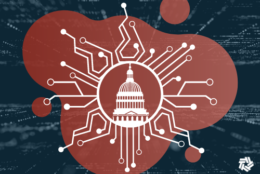Army
-
Percipient.AI alleges NGA and prime contractor CACI are ignoring a law requiring agencies to buy commercially available products.
January 13, 2023 -
Raj Iyer has been the Army’s chief information officer November 2020 and has focused on 13 lines of effort to modernize technology and change the culture.
January 05, 2023 -
The federal government is facing the same talent crunch as private sector organizations. Particularly with pending government retirements, it is more important than ever for agencies to build effective team environments that empower employees and offer career roadmaps that will strengthen retention and commitment.
December 28, 2022 -
Paul Puckett, the former director of the Enterprise Cloud Management Agency (ECMA) in the Army’s CIO office, said the cloud is not only demonstrating value, but are also fundamentally changing the way that the Army looks at requirements, organizational alignment and incentive structures.
December 16, 2022 -
The Army expects it'll take about a year to get everyone on the virtual desktop capability.
December 16, 2022 -
The Army is asking industry — and itself — whether it truly needs to own and maintain 350,000 high-end tactical radios. Buying simpler radios and leasing the more advanced ones are among the options on the table.
December 16, 2022 -
The Army wants industry to help it change the way it structures its data. A newly-released request for information is a key first step in building a federated, decentralized model the Army calls the Unified Data Reference Architecture.
November 11, 2022 -
U.S. Army officials say investigators have launched a broad review of at least 1,900 National Guard and Reserve soldiers who were swept up in a recruiting bonus scandal up to a decade ago and may have been wrongly blamed and punished.
November 03, 2022 -
The Army says SBOMs are "going to happen" and is now asking for feedback on how to use them as part of the acquisition process.
October 31, 2022 -
The Army has a new cybersecurity strategy for operational technology, as service officials are concerned about cyber attacks on critical infrastructure.
October 14, 2022 -
The Army Corps of Engineers is all about infrastructure, in particular the nation's waterways. When the infrastructure bill was signed into law, the Corps got a good chunk to get after some overdue work. At this week's Association of the U.S. Army conference, the Federal Drive with Tom Temin spoke with the Corps's deputy commander, Maj. Gen. Richard Heitkamp. They began their discussion addressing the Corps' work in the aftermath of Hurricane Ian.
October 14, 2022 -
Many agencies struggle with antiquated digital architecture and a lack of skills and talent to implement AI, a chief data scientist at the Commerce Department's National Technical Information Service said.
October 12, 2022 -
In today's Federal Newscast: The Army is creating a new integrated program office to bring all of its zero trust pursuits under one roof. GAO tells GSA it has got a real problem selling real estate efficiently. And Senate inaction causes a top OMB vacancy to remain unfilled, going on five years.
October 12, 2022 -
The Army's updated cloud plan adds urgency for commands to move their legacy systems to the cloud, with more cuts planned to government data centers. Hundreds of other systems deemed to have low business value will be sunset entirely.
October 12, 2022 -
Among other things, initiatives aim to incentivize large prime contractors to incorporate innovations from small businesses into their bid proposals and give contracting officers better tools to manage intellectual property rights.
October 11, 2022














